Taylor Swift is the ultimate pop star, beloved by hundreds of millions of fans across the globe. Her first 11 albums are certified multiplatinum, while her latest release, The Life of a Showgirl, broke the record for first-week sales.
As Taylor has been releasing music 2006, many listeners have grown up with her. They have jammed out to all of her musical sides, from girlish country, to boppy millennial pop, to poetic folk music.
Both a fun, carefree outlet and a vehicle for deep emotional processing, Taylor's music has taken on a life of it's own. Her work as a songwriter is empathetic, clever, and deeply human—and full of interesting literary references.
In fact, she is so well-known for literary allusions that a part of the internet has jokingly come to refer to them as their English teacher. Well, if you're so eager to learn, then class is in session!
Here is the ultimate Taylor Swift reading list—though knowing her mind, it's probably not comprehensive. Dive into some of Taylor's biggest lyrical influences in the books below.

The Road Not Taken and Other Poems
“I tried to take the road less traveled by, but nothing seems to work the first few times, am I right?” —"The Outside," Taylor Swift
“Take the road less traveled by, tell yourself you can always stop” — “illicit affairs,” folklore
Due to the broad popularity of Robert Frost's poem, “The Road Not Taken,” the phrase “the road less traveled” is a fairly common phrase in the English lexicon.
The fact that Taylor tacks on the “by” at the end of the phrase makes the allusion to this poem feel a bit more intentional. And referencing this work in two different songs certainly makes this collection a must-read!

Romeo and Juliet
“You were Romeo, you were throwing pebbles, and my daddy said, ‘Stay away from Juliet’” — “Love Story,” Fearless
“A rose by any other name is a scandal” — “The Albatross,” The Tortured Poets Department: The Anthology
From the sweet innocence of bemoaning a forbidden romance to the wisened rumination of the futility of calling something anything other than what it truly is, Taylor Swift can't seem to get enough of this classic. And why should she? The story is iconic enough that one can understand the references even if they haven't read this great work.
That said, if you haven't read it, you definitely should.
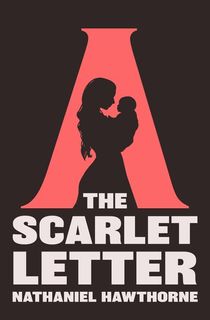
The Scarlet Letter
“'Cause you were Romeo, I was a scarlet letter” — “Love Story,” Fearless
“We show off our different scarlet letters, trust me, mine is better” — “New Romantics,” 1989 (Deluxe)
Who knew that shame and alienation could be so fun?
This is another mega-classic that most people will grasp the references to, even if they never cracked it open. Most of us had to read this in school, but I'd say it's worth another look with older eyes, wouldn't you?
It was good enough for Taylor to return to.
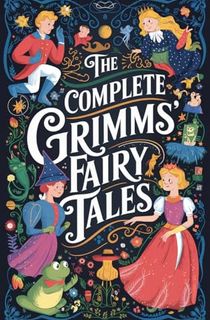
The Complete Grimms' Fairy Tales
“Don't know if Snow White's house is near or far away” — “The Best Day,” Fearless
“Locked me up in towers, but I’d visit in your dreams” — “The Albatross,” The Tortured Poets Department: The Anthology
“Poison blood from the wound of the pricked hand” — “Cassandra,” The Tortured Poets Department: The Anthology
Fairytales are the backbone of literary references, and Taylor Swift's fantastical mind sure gives this collection a workout. From “Snow White” to “Rapunzel” to “Sleeping Beauty,” these stories may not be the cartoonish joys you remember from your childhood…
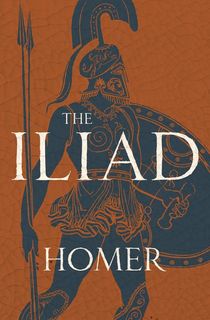
The Iliad
“These are the hands of fate, you're my Achilles heel” — “State of Grace,” Red
“And you understand now why they lost their minds and fought the wars” — “You Are In Love,” 1989 (Deluxe)
Is it a coincidence that some of my favorite Taylor Swift songs reference the same epic poem? Maybe!
But Homer's The Iliad is a beautiful, sweeping story about pride, love, and devastation. If you love to hurt your own feelings, this is an incredible read.
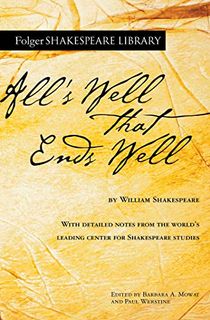
All's Well That Ends Well
“They say all's well that ends well, but I'm in a new hell every time you double cross my mind” — "All Too Well (10 Minute Version)," Red (Taylor's Version)
“All's well that ends well to end up with you” — “Lover,” Lover
Though “all's well that ends well” was a common phrase even before Shakespeare's like-titled play, the playwright popularized it and cemented it in history. And if you ask me, the romantic agonies Helen faces in her relationship with her husband Bertram are so giving “All Too Well.”

Slaughterhouse Five
“So it goes, he can’t keep his wild eyes on the road” — “Style,” 1989
“And so it goes, you two are dancing in a snow globe ‘round and ‘round” — “You Are in Love,” 1989 (Deluxe)
“Getting caught up in a moment, lipstick on your face, so it goes” — “So It Goes…,” reputation
While it's impossible to say whether or not Taylor Swift intentionally drew inspiration from Kurt Vonnegut's Slaughterhouse-Five, what we can say is that both Swift and Vonnegut are very fond of the phrase “so it goes.”
In fact, Vonnegut uses the phrase “so it goes” 106 times in his book, using it to mark each instance of death, making it a symbol of inevitability.
While Taylor doesn't wield the phrase quite so often (granted, there are a dozen uses in the titular track), it does serve to give a certain helplessness to her depictions of love, rather than death.
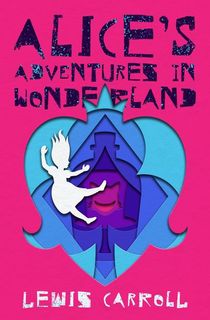
Alice's Adventures in Wonderland
“Didn't you calm my fears with a Cheshire Cat smile?” — “Wonderland,” 1989 (Deluxe)
“I fell from the pedestal, right down the rabbit hole” — “long story short,” evermore
This book is a childhood staple—a story of indescribable wonders and unexpected troubles. A Wonderland that is beautiful until you start to get lost.
And as you step into adulthood, there's no better metaphor for toxic relationships, so Taylor really knocked it out of the park with these references.
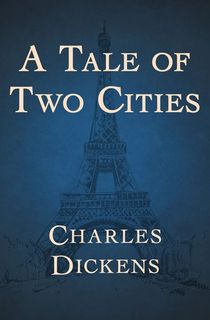
A Tale of Two Cities
“It was the best of times, the worst of crimes” — “Getaway Car,” reputation
The opening lines of Taylor's “Getaway Car” is a fun play on the opening lines of Charles Dickens' infamous novel: “It was the best of times, it was the worst of times.”
But beyond just a clever play on an iconic opener, “Getaway Car” shares some thematic material with the novel, as well.
After all, Taylor's song is about hopping into a relationship with a man to escape another doomed attempt at love, and A Tale of Two Cities, at its center, is a story of two men competing for the love of a beautiful woman.
The Great Gatsby
“Feeling so Gatsby for that whole year” — “This Is Why We Can't Have Nice Things,” reputation
“All you want from me now is the green light of forgiveness” — “happiness,” evermore
Taylor's songs that reference this classic of American literature approach it very differently. In “This Is Why We Can't Have Nice Things,” Taylor uses the book to evoke a feeling of lavish luxury, a glamour known amidst the Jazz Age in which the novel is set.
In “happiness,” Taylor taps into the melancholic yearning that Fitzgerald wove between Daisy at Gatsby. Her words evoke inevitable suffering cushioned—or perhaps exacerbated—by genuine love.
The Sun Also Rises
“And isn’t it just so pretty to think all along there was some invisible string tying you to me” — “invisible string,” folklore
This is an interesting lyric, as it appears to intertwine two literary references into one. I'll get into the second one below, but for now we're focused on the first half, “And isn't it just so pretty to think…”
The Sun Also Rises is set after the Great War, a novel of melancholia and yearning. In it, the war-battered veteran Jake Barnes is drawn to the enchanting divorcée, Lady Brett.
After Brett comments on how the pair might have had a good time together, Barnes responds, “Isn't it pretty to think so?”
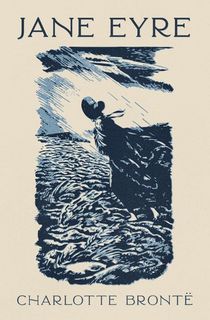
Jane Eyre
“And isn’t it just so pretty to think all along there was some invisible string tying you to me” — “invisible string,” folklore
Now onto the second half of this lyric, “…All along there was some invisible string tying you to me.”
Jane Eyre is a tale of agonizing wanting—of external forces warring bitterly with one's personal will. Of what's “right” versus the heart versus pride. And through it all, a patient love that refuses to wither even in the face of terrible truths.
Mr. Rochester, in a swooningly romantic moment, admits to Jane, "It is as if I had a string somewhere under my left ribs, tightly and inextricably knotted to a similar string in the corresponding quarter of your little frame.”
Peter Pan
“Tried to change the ending, Peter losing Wendy” — “cardigan,” folklore
“Lost to the Lost Boys chapter of your life” — “Peter,” The Tortured Poets Department: The Anthology
Another classic of children's literature, everyone knows the story of Peter, Wendy, Tinker Bell, and the Lost Boys—be it from this charming book or its beloved cartoon adaptation.
In both songs that Taylor references this tale, she taps into a devastating nostalgia that hits the listener like a brick. In “cardigan” she evokes the inevitability of two different people drifting apart after a wondrous time together.
In “Peter,” she recalls the torturous waiting on a situation—or person—that is never going to change.

Rebecca
While there are no direct lyrical references to this title, Taylor spoke in an interview with Apple Music about how Rebecca inspired her song “tolerate it” from the album evermore.
“I was thinking, wow, her husband just tolerates her,” Taylor said. “She's doing all these things, and she's trying so hard, and she's trying to impress him, and he's just tolerating her the whole time.”
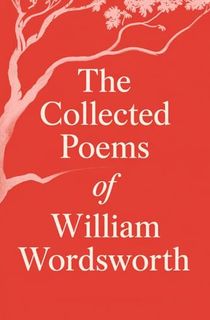
The Collected Poems of William Wordsworth
“I’ve come too far to watch some name-dropping sleaze tell me what are my words worth” — “the lakes,” folklore (deluxe)
I know that I can't say every Taylor Swift song is one of my favorites, but this one is truly up there, delivering breathtaking lines and an evocative melody. The song mentions the titular lakes as the place “where all the poets went to die,” one poet she's certainly been inspired by is William Wordsworth.
In fact, in the official lyric video, the line above is styled as “what are my Wordsworth.”
So get your fill of Wordsworth's beautiful poetry in this convenient collection!
.jpg?w=640)
The Ways We Touch
“I’d meet you where the spirit meets the bones” — “ivy,” evermore
Miller Williams acting as an inspiration for Taylor's writing seems like a pretty sure thing, considering “where the spirit meets the bone” is a line directly from Williams' poem, “Compassion.”
If you want even more breathtaking poetry, try out his collection The Ways We Touch, which contains the aforementioned poem.
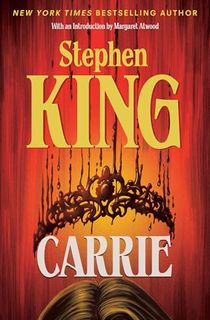
Carrie
“I looked around in a blood-soaked gown” — “You're On Your Own Kid,” Midnights
You might be surprised that someone as uplifting as Taylor Swift has an interest in horror movies, but she's on the record as citing them as an inspiration—particularly horror flicks from director Guillermo del Toro.
But in this instance, a reference to Stephen King's Carrie novel seems undeniable. After all, the bloody prank at the prom evokes the same feelings of alienation and simmering rage as this moment in Taylor's song.
And for what it's worth, Stephen King himself seems to be just as big of a fan, stating on Twitter, “I love Taylor Swift. Her music makes me happy.”

A Wrinkle in Time
“A wrinkle in time like the crease by your eyes” — “Hits Different,” Midnights (The Til Dawn Edition)
“The brink of a wrinkle in time, bittersweet 16 suddenly” — “So High School,” The Tortured Poets Department
Name-dropping the title of a book in your lyrics is a pretty good clue that a work has inspired you, but beyond that, Taylor is referencing the method of time travel used in this novel.
She turns the distortion of time into something burningly romantic—and I know we're all feeling extra things about “So High School” after Taylor's recent personal news.
Seems like the perfect time to pick up this book again…
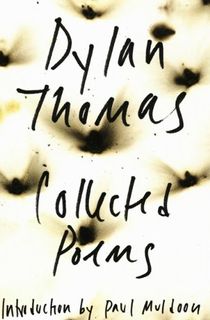
The Collected Poems of Dylan Thomas
“You’re not Dylan Thomas…” — “The Tortured Poets Department,” The Tortured Poets Department
In the album's titular track, Taylor spins a tale of a dark and complicated budding romance, sprinkled with self-deprecating remarks. In it she name drops Welsh poet Dylan Thomas, who is most famous for poems like "Do not go gentle into that good night."
For more moody poetry, check out one of his collections.
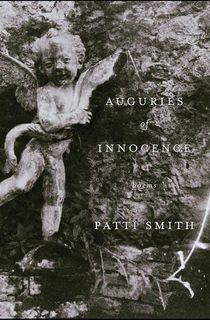
Auguries of Innocence
“…I’m not Patti Smith” — “The Tortured Poets Department,” The Tortured Poets Department
On the flipside of this lyric, Taylor name-drops Patti Smith, an influential singer, songwriter, and poet who came up through the 1970s punk movement. You may know her for her seminal album Horses.
If you'd like to get to know her even better, check out this poetry collection.
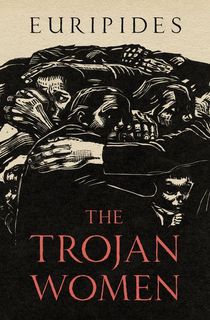
The Trojan Women
“So, they killed Cassandra first 'cause she feared the worst and tried to tell the town” — “Cassandra,” The Tortured Poets Department: The Anthology
There are no direct references either to this stage play or the aforementioned Iliad in this dark track, but the mythological reference is clear. If you've already read the Iliad and want to dive even deeper into Cassandra's story, The Trojan Women gives her and her prophecies a more central focus.
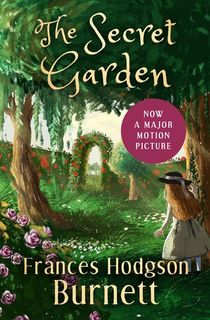
The Secret Garden
“I hate it here so I will go to secret gardens in my mind” — “I Hate It Here,” The Tortured Poets Department: The Anthology
Yet another children's classic, this is a tale of loss and connection. Taylor points to this literary reference with a big flashing arrow, stating about the secret garden in the chorus, “I read about it in a book when I was a precocious child.”

The Pursuit of Love
“Behind her back, her best mates laughed and they nicknamed her ‘The Bolter’” — “The Bolter,” The Tortured Poets Department: The Anthology
This song is inspired by a collection of three Nancy Mitford novels, the first of which is The Pursuit of Love, first published in 1945. In these novels, the narrator’s mother is nicknamed “The Bolter,” known for her poor choices in serial monogamy.
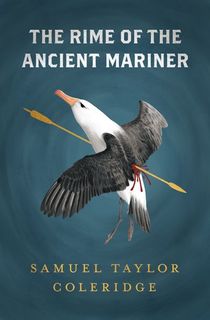
The Rime of the Ancient Mariner
While there are no direct lyrical references in “The Albatross” to the famous poem “The Rime of the Ancient Mariner,” the thematic material heavily draws from it.
In Samuel Taylor Coleridge’s poem, a sailor senselessly kills an albatross. As bad things begin happening in the aftermath, his fellow shipmen force him to wear the dead bird around his neck to absolve his sins.
In Taylor’s song, she herself is this bad omen bird—a creature which is considered a curse, but only through the self-destructive actions of man.
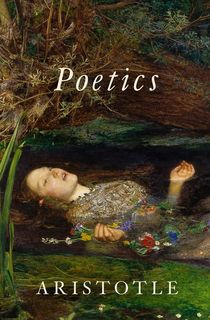
Poetics
“You know how to ball, I know Aristotle” — “So High School,” The Tortured Poets Department: The Anthology
With Taylor coming right out and proclaiming she’s familiar with the works of the ancient Greek philosopher, it seems a good time for us all to brush up.
While his teachings and musings encompass a broad range of topics, his thoughts on the dramatic arts, Poetics, seems the most appropriate place to start.
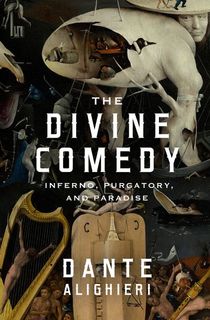
The Divine Comedy
“And if you’d never come for me, I might’ve lingered in purgatory” — “The Fate of Ophelia,” The Life of a Showgirl
While it’s possible this passing mention of the in-between place of the afterlife is merely a reference to Catholic theology, it’s a pretty safe bet that Taylor has a pretty well-rounded knowledge of the classics.
Dante Alighieri’s The Divine Comedy is a massively influential text, and worth reading even for the briefest of allusions.

Hamlet
“The eldest daughter of a nobleman, Ophelia lived in fantasy” — “The Fate of Ophelia,” The Life of a Showgirl
From the title to the content of the song, “The Fate of Ophelia” uses the tragic character of Ophelia from Shakespeare’s Hamlet to color the story of her emotional journey. Ophelia was driven to madness and eventual suicide by the twisted machinations of her potential husband and a general lack of agency in a world of men.
In Swift’s tale, she is saved from the same dark fate by a lover with pure intentions.

The Godfather
“You’ll be sleeping with the fishes before you know you’re drowning” — “Father Figure,” The Life of a Showgirl
While most people know about the seminal mafia movie from director Francis Ford Coppola, a surprising amount of people are unaware that the story is adapted from the 1969 book of the same name by Mario Puzo.
In both the book and the film, the Corleone family receives a coded message that means “Luca Brasi sleeps with the fishes."
While Taylor’s riff on the reference implies a career death, she invokes that same sense of cold aggression you’ll find in the novel.
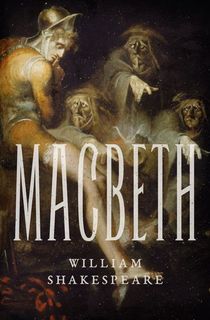
Macbeth
“Something wicked this way comes” — “Cancelled!” The Life of a Showgirl
This line from Shakespeare’s Macbeth is a very popular reference point across media. It is spoken in Act IV by one of the witches, portending not only Macbeth’s arrival, but his shift from a courageous hero to a villain twisted by malicious ambition.
Taylor’s song showcases the darker side of fame, and how women in particular are framed as villains simply for existing in the public eye.

The Hunger Games
If you haven’t read The Hunger Games—or the trilogy’s prequels—perhaps these two songs inspired by the books will convince you to finally pick them up.
For the soundtrack of the 2012 film adaptation of The Hunger Games, Taylor wrote “Eyes Open.” With the help of the musical group The Civil Wars, she also penned “Safe & Sound.”
While the former song is about resilience and a loss of childhood innocence, the latter encapsulates heartbreaking loss and helplessness.

Fifty Shades of Grey
In collaboration with Zayn, Taylor Swift wrote the song “I Don’t Wanna Live Forever” for the film Fifty Shades Darker.
The song spins a tale of tormented and sensual yearning—which you’ll find a lot of throughout the Fifty Shades of Grey trilogy.

Where the Crawdads Sing
“Carolina” is the most recent song Taylor wrote for a movie soundtrack, bringing extra emotion to the film adaptation of Where the Crawdads Sing.
This haunting song details the experience of the book’s main character, Kya, who grew up in isolation in a North Carolina swamp—until the unthinkable happens.
Extra Credit:
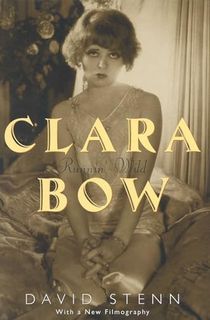
Clara Bow: Runnin' Wild
If you want to put in a little bit of extra work to step into the brilliant mind of Taylor Swift, then this is a good place to start.
There don’t appear to be any obvious literary references in the song “Clara Bow,” but the song is referencing a very real person—an iconic “it girl” of silent film.
Read more about her in this gripping biography!
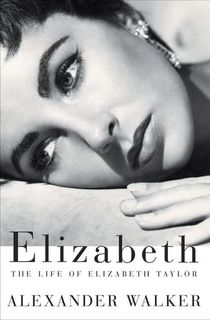
Elizabeth
Speaking of “it girls,” you won’t find one flashier or more celebrated than Elizabeth Taylor. The late English-American actress was known not only for a high-glamour lifestyle, but a messy history of romances.
In this song, Swift makes connections between their level of fame and scrutiny, as well as referencing the actress’s personal and professional life—and of course her iconic violet eyes.
To learn more about this glittering silver screen legend, check out her biography.
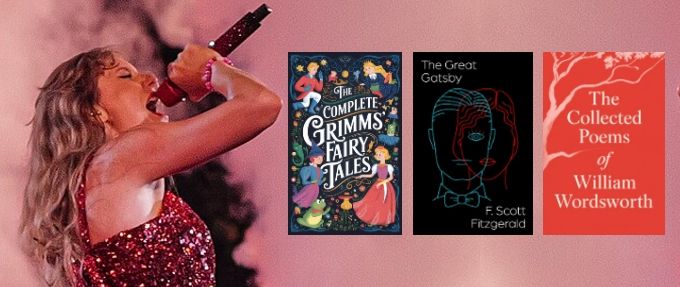





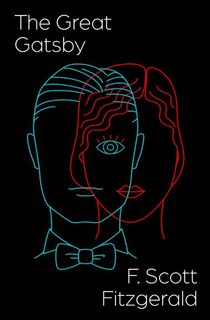

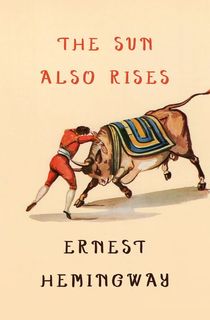
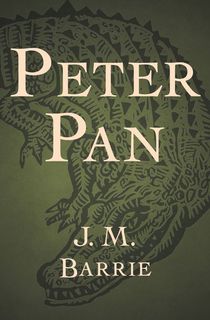


.jpg?w=640)









